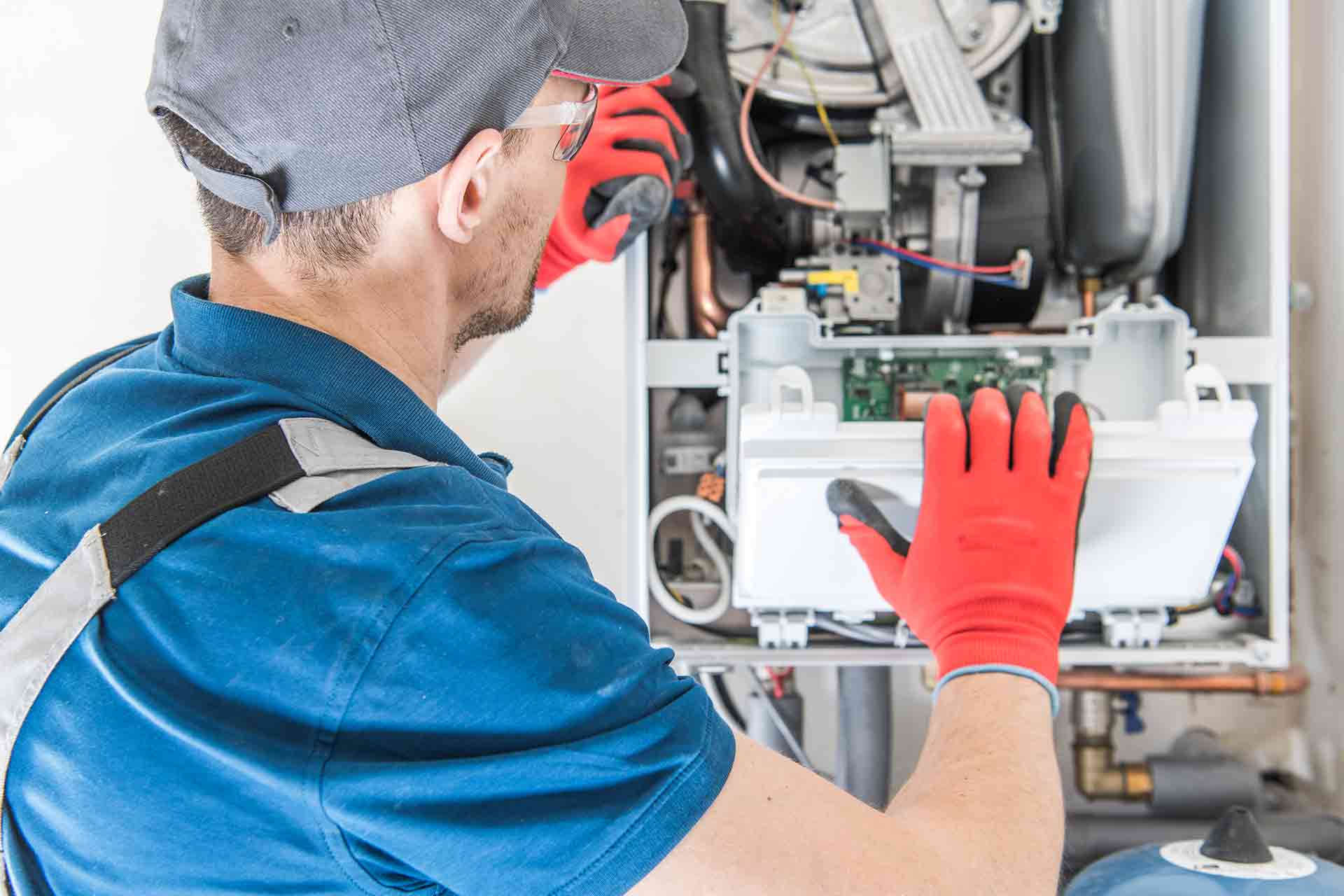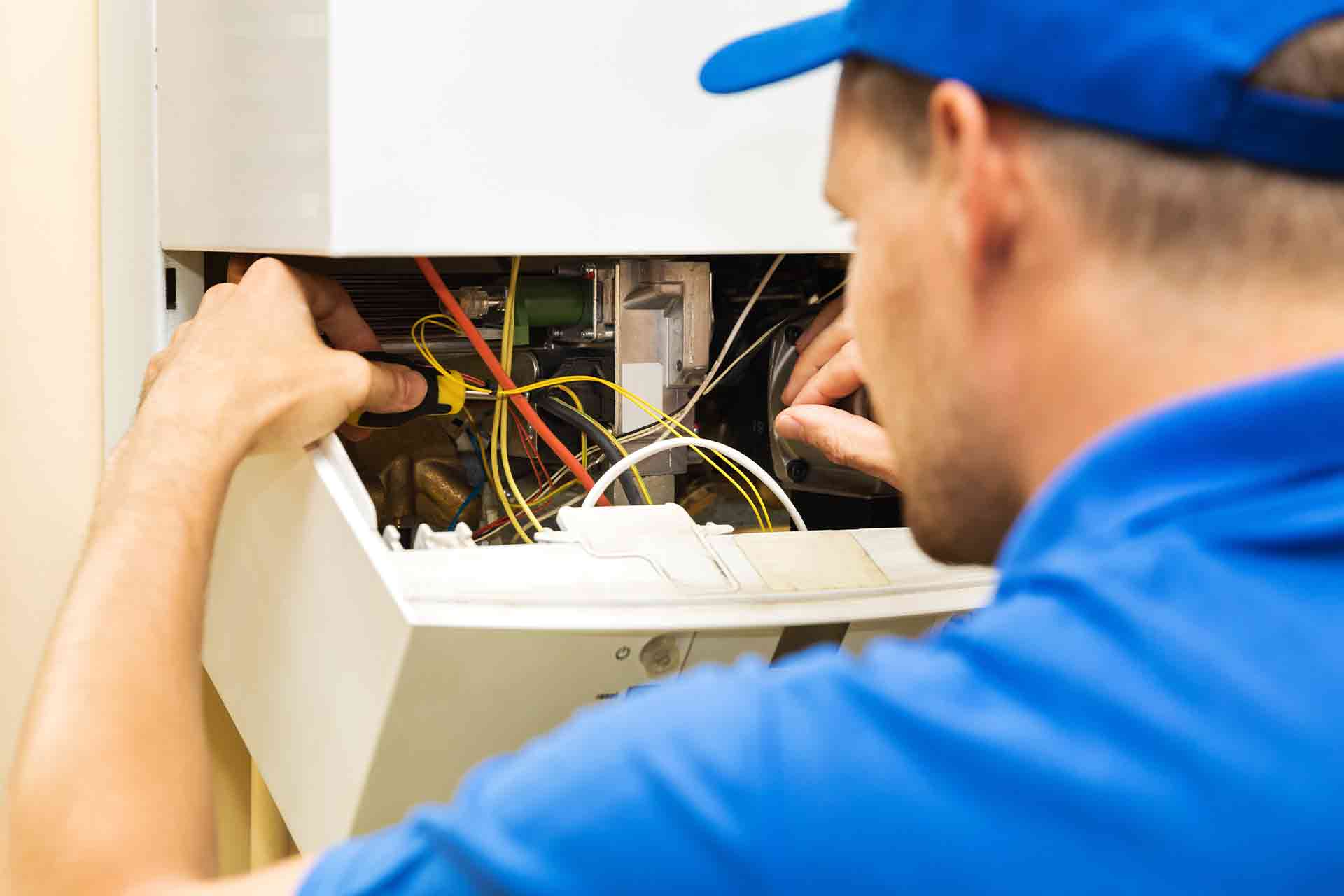Blog>Expert Advice>Common Glow-worm boiler problems and how to fix them
Last updated: 13 November 2024
Common Glow-worm boiler problems and how to fix them
Is your Glow-worm boiler playing up? Discover common problems, DIY-fixes, and how to find reliable Gas Safe heating engineers when you need them.
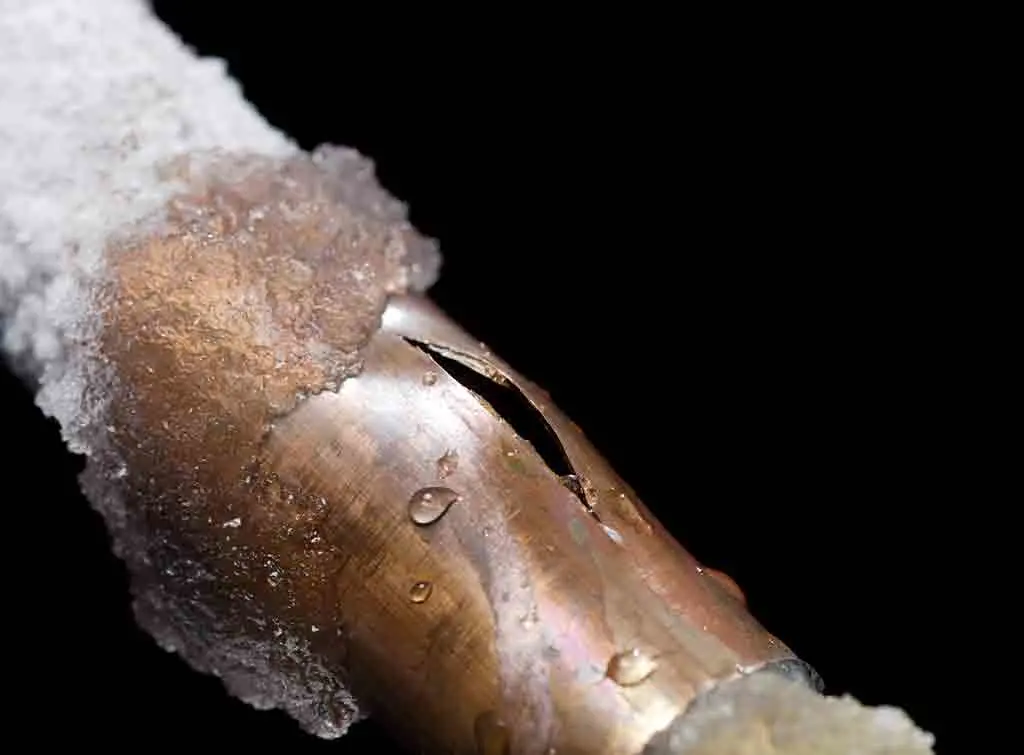
While Glow-worm boilers do a great job of powering up the heat in countless UK homes, they can occasionally run into issues like any boiler.
In this article, we’ll tick off some of the most common issues homeowners report with Glow-worm boilers. We'll also help you decide whether or not you need to call in a heating engineer expert.
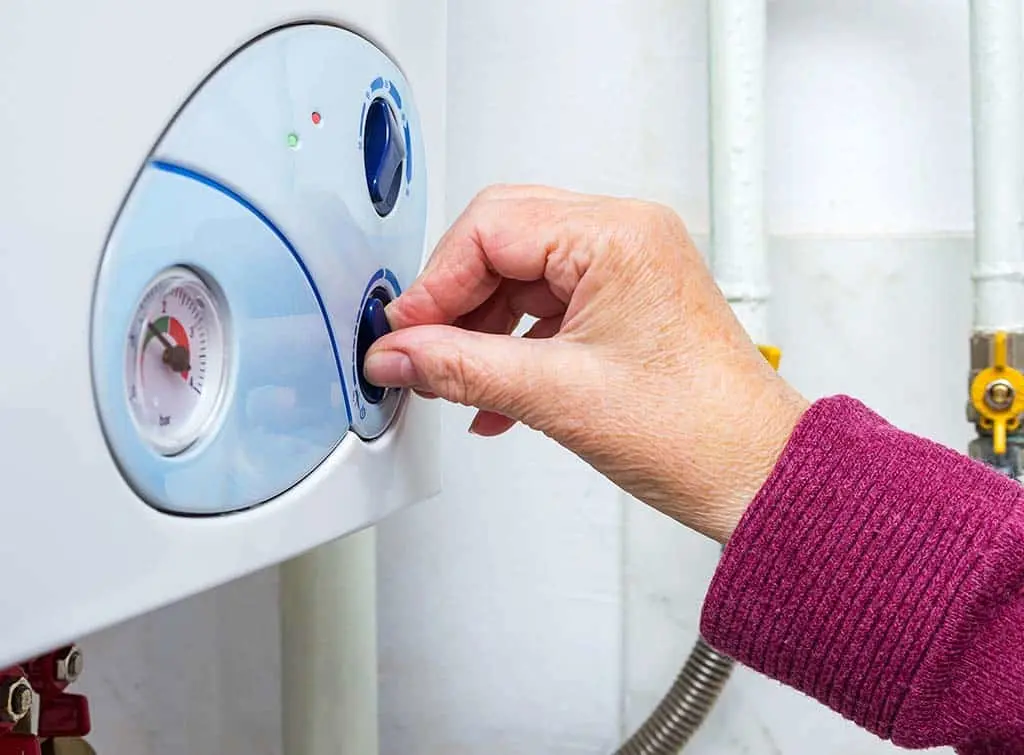
Common Glow-worm boiler problems
With proper care (including an annual service by a registered engineer) Glow-worm boilers can last up to 15 years.
However, like any household appliance, issues can occasionally crop up. Common problems you might be experiencing with your Glow-worm boiler include:
Error codes
Intermittent hot water and heating
Strange noises
Programming out of sync
The pilot light going out
The good news is that not all of the issues above require the help of a professional heating engineer. With some know-how from us, you may be able to fix them yourself.
Let’s run through this one problem at a time. First up, what are the most common error codes for a Glow-worm boiler?
What to do when a fault code is displayed
Seeing your boiler come up with a sea of error codes will make any homeowner panic – especially if you don’t know what they all mean because you've misplaced the manual!
Here are some of the most common error codes and what to do about them:
F1 Fault – Ignition error
You’ll see this error code if one of the ignition stages hasn’t finished correctly. This might be because the condensate pipe has become blocked or frozen.
Thankfully, this can be a simple DIY fix. Start by trying to defrost the condensate pipe – wrapping a hot water bottle around the component should do the trick.
Not sure which is the condensate pipe? Our expert advice guide about condensate pipes can help.
F4 Fault – Ignition error
Similar to the F1 fault, an F4 error code also points to an ignition error. However, the reasons are more complex. You might have a faulty ignition electrode, a blocked burner, or a malfunctioning spark generator on your hands.
This isn’t a DIY fix, as these are internal technical errors. You’ll need a Gas Safe engineer to repair them.
They’ll inspect the ignition components and clean them out before recommending the next steps.
F9 Fault – Low water pressure, circulation and diverter valve errors
If you see the dreaded F9 fault flash up, it could be caused by several different problems.
Start with a process of elimination by repressurising your boiler to rule out low water pressure as an issue.
If that doesn’t do the trick, you could also try cleaning the water pressure sensor. Glow-worm boilers are particularly sensitive to dirty sensors, which could be causing the F9 error.
Failing that, you’ll want a professional to help. It might be an issue with a sludge-filled plate heat exchanger, which Glow-worm boilers are particularly prone to this. Hopefully, an engineer flushing out the system will get your boiler back on track.
Top tip – If your boiler system is regularly getting clogged, ask your engineer to fit a magnetic filter. This will help catch debris and rust particles as the water flows through the pipework. This is particularly helpful if you live in an area with hard water.
Our boiler cost guide has information about what you can expect to pay for a magnetic filter.
See the tradespeople we've checked and recommend for your job
What to do when no fault code is displayed
Sometimes, your boiler will display no error codes, but you’ll know something isn’t right. Perhaps your heating has started being a bit hit or miss – or the water is taking longer than usual to heat up.
Here are some of the ways you can get to the bottom of the issue:
1. Check your boiler pressure
Have you switched your heating back on for the first time in a while and noticed that your radiators aren’t heating up fully? Your boiler pressure might be low.
This can sometimes happen if you have a small water leak in your heating system or have not correctly balanced your radiators. Frustrating as it is, your boiler may switch off completely as a safety precaution.
As a general guide:
The typical boiler pressure is between 1 and 1.5 bars
Anything lower than this will likely require repressurising your boiler
Check the pressure gauge on your boiler's front interface
Refill it if necessary (This is something you can do yourself)
First things first, check your boiler manual, as there may be additional steps to take depending on your boiler model. Then follow the advice in our how to repressurise your boiler guide.
Top tip – If you’ve lost your boiler manual, don’t fret. All of Glow-worm's boiler manuals can be downloaded off their website.
2. Check for a faulty diverter valve
Diverter valves are a hardworking and integral component in any boiler. Busily directing hot water to our home’s radiators, taps, showers, and underfloor heating, it’s no surprise that they can occasionally get stuck.
Heating coming on without hot water, inconsistent water temperatures or strange noises are all telltale signs of a faulty diverter valve.
If you suspect this is the issue, only a Gas Safe registered heating engineer can repair a stuck or faulty diverter valve as this is an internal component. You’re dealing with gas and electricity, which can be dangerous in inexperienced hands.
Our advice guide on stuck diverter valves has plenty more information.
See the tradespeople we've checked and recommend for your job
3. Check for an airlock in the system
If you’ve followed the steps above but are no closer to fixing the issue, it could be because air is trapped in a boiler’s system.
The easiest way to remedy a boiler airlock is to bleed out your radiators to allow the air to escape.
Another method is to use a hose to force water through the system and push the air out. However, this is a job for a professional engineer.
4. Listen out for strange noises
All boilers will make some noise. It could be a quiet whirling, or you may hear water trickling into your radiators.
However, loud banging, whistling, or gurgling from your boiler shouldn’t be ignored.
It could be a sign of air in the system, which can be easily fixed by balancing out your radiators (as we’ve explored above).
However, it could also be a sign of a failing circulator pump. If left unrepaired for too long, this could damage your boiler, so you’ll want a professional to look at this.
5. Check your thermostat and timer
There’s nothing more frustrating than not being able to programme your heating or finding it kicks in at random times.
Some people override the boiler programming error by switching it off and on again or using the reset button.
However, it’s worth getting it fixed once and for all. An efficient boiler running at the correct pre-programmed times will save you money in the long run.
First things first, check if it’s an issue with the thermostat.
Sometimes, cleaning the inside of the thermostat can help if it’s become particularly dirty – something which Glow-worm boilers are sensitive to. You can do this by:
Turning off the power
Removing the thermostat cover
Gently brushing away any surface dirt
If that doesn’t do the trick, you might need a replacement. While you can attempt to replace a thermostat yourself, we wouldn’t recommend it. This job requires electrical wiring and safety know-how.
That’s why we think this job is best left to the professionals.
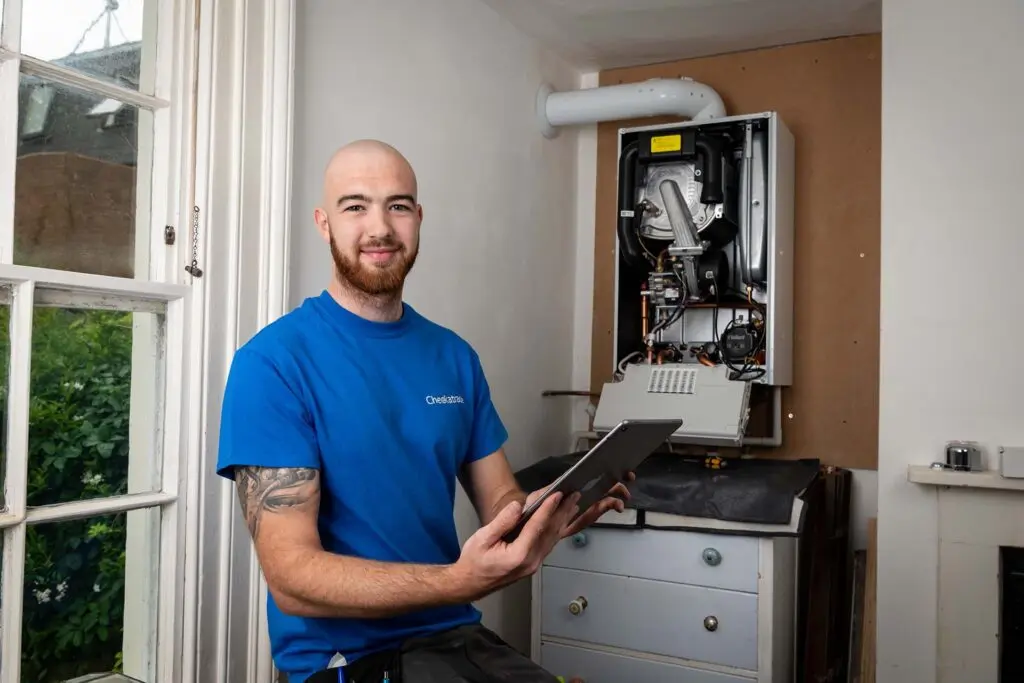
How to find a reliable heating engineer to help
Search for a professional to repair your Glow-worm boiler safely and efficiently by following these three simple steps:
Use a professional directory
Save time by using a professional directory (like Checkatrade!).
We're so confident in the quality of the trades on Checkatrade that if you book through us, we guarantee their work up to £1,000. Guaranteed for 12 months – Eligibility criteria and T&Cs apply.
Contact or pay a trade through Checkatrade and you’re covered by our 12-month guarantee of up to £1,000*

Read online reviews
A review from a previous customer is one of the best ways to check a tradesperson's professionalism.
At Checkatrade, we check all online reviews to ensure they're from real people and that trades meet our high standards.

We check the reviews on Checkatrade are from real people, and that trades meet our high standards.
Compare quotes
Get at least three quotes from experienced heating engineers. That way, you can be sure you're getting the best tradesperson and price for the job. Search your postcode to get started.
See the tradespeople we've checked and recommend for your job
How much does it cost to repair a Glow-worm boiler?
Repairing or replacing Glow-worm boiler parts is relatively straightforward. Because Glow-worm is part of the Vaillant Group (one of the UK’s largest boiler manufacturers), parts are generally easy to come by and reasonably priced.
How much a Glow-worm boiler repair costs depends on the fault. However, to give you a general steer, a gas engineer will typically charge an average hourly rate of £65 + repairs & parts.
Meanwhile, the average boiler service cost ranges from £100.
Top tip – If your boiler is still under warranty and you're up-to-date on the annual services, you might be able to have repairs carried out for free. Just make sure the repairs are fitted by a heating engineer approved by the manufacturer.
Considerations
If your boiler is an older model (10 years plus) and the repair costs are mounting up, it might be time for a replacement.
Many utility companies offer boiler payment plans to help spread the costs and there are some great deals to be had. Shop around for a plan that requires no deposit and offers 0% interest for the first three years.
Ready to get your Glow-worm boiler back up and running? Book with Checkatrade today for reliable, trusted tradespeople.
Glow-worm boiler problems: key takeaways
Most Glow-worm boilers have a shelf-life of 10-15 years
An annual service is essential to keep your Glow-worm warranty validated
Glow-worm replacement parts are easy to come by and reasonably priced
Don't be tempted to fiddle around with the internal components of your boiler for a quick fix – this is a job for a Gas Safe registered engineer
Glow-worm boiler problems: frequently asked questions
How long should a Glow-worm boiler last?
Like most standard boilers, a Glow-worm boiler should typically last 10–15 years. However, a regular annual service could extend its life.
Do Glow-worm boilers come with a warranty?
Most Glow-worm boilers offer a five-year warranty. However, you may be able to extend this for an additional cost.
More Expert Advice Articles
More Gas Central Heating Servicing / Repair Articles
See the tradespeople we've checked and recommend for your job



